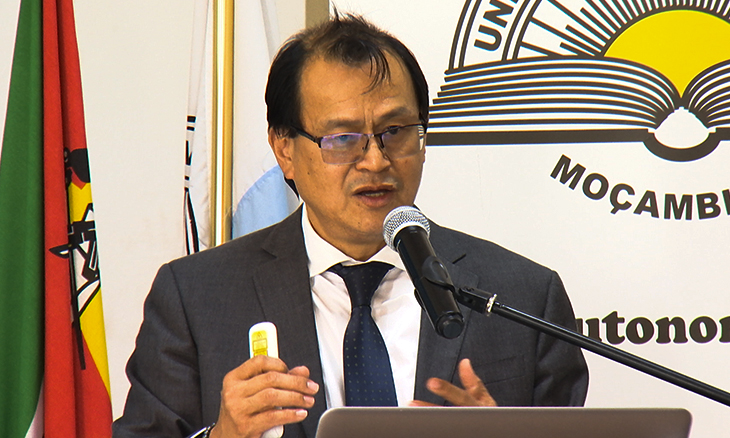Mozambique, Angola and Equatorial Guinea take spotlight at African Energy Week
Mozambique: $5B for Mphanda Nkuwa hydropower plant assured by year’s end – official

Photo: O País
The financing guarantees to build the Mphanda Nkuwa Hydroelectric Power Plant in Mozambique, budgeted at €4.5 billion, will be secured by the end of this year, the director of the project office, Carlos Yum, said on Monday.
“At the moment we are dealing with the specifics of the expressions of interest to finance the project. We can say that things are going well,” said Yum, speaking to journalists on the sidelines of a lecture with students from the Pedagogical University.
Earlier, during the talk, the director of the office responsible for implementing the project told the students that “there is a strong appetite from various development finance institutions”.
Of the total amount of US$5 billion (€4.5 billion) needed to build the infrastructure, US$1.3 billion (€1.1 billion) will be disbursed by the consortium that will manage the project and the remainder by financial institutions that will ensure “financial closure” by the end of this year, he said.
“The size of the project requires institutions with financial capacity,” emphasised Carlos Yum.
He also said that the hydroelectric plant will take five years to build and is expected to start operating in 2031.
The project will consist of a hydroelectric plant with a production capacity of 1,500 MegaWatts (MW) and a 1,350 to 1,400 kilometre high-voltage transmission line from Tete in central Mozambique to Maputo in the south.
“It’s a critical undertaking for the energy transition strategy,” given that the hydroelectric plant will be fuelled by a renewable source, which is water, he continued.
The director of the project office pointed out that the construction of the infrastructure has taken into account the dimensions of environmental, social, economic and financial sustainability, based on the interaction that has taken place with all the relevant parties, including the communities in the region where the undertaking will be built.
Carlos Yum was thus reacting to the strong opposition from some environmental organisations to the Mphanda Nkuwa Hydroelectric Plant, which will be built 61 kilometres downstream from the Cahora Bassa Hydroelectric Plant (HCB), built during Mozambique’s colonial era.
Yum noted that the infrastructure will make a contribution to the energy inclusion policy that Mozambique is pursuing and increase the energy surplus to consolidate its position as a major exporter of this resource in southern Africa.
Last December, the Mozambican government and a consortium led by Electricity of France (EDF) signed agreements for the implementation of the Mphanda Nkua Hydroelectric Project.
In addition to EDF, the international consortium is made up of the French oil company TotalEnergies and the Japanese Sumitomo Corporation, which jointly own 70% of the hydroelectric plant.
Representing the Mozambican state, Hidroelétrica de Cahora Bassa (HCB) and Eletricidade de Mozambique (EDM) hold the remaining 30%.
Even with the start-up of MMphanda Nkuwa, HCB will remain the largest in the country, with a current production capacity of 2,075 MW












Leave a Reply
Be the First to Comment!
You must be logged in to post a comment.
You must be logged in to post a comment.